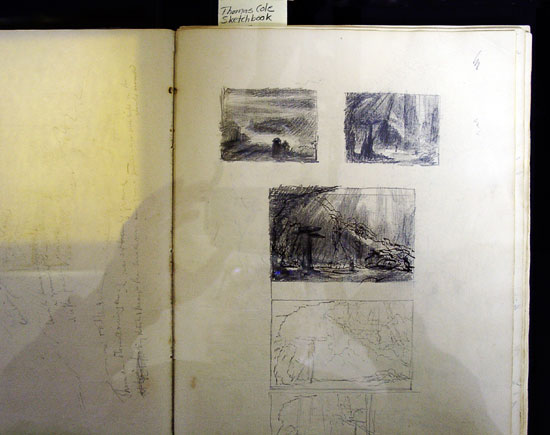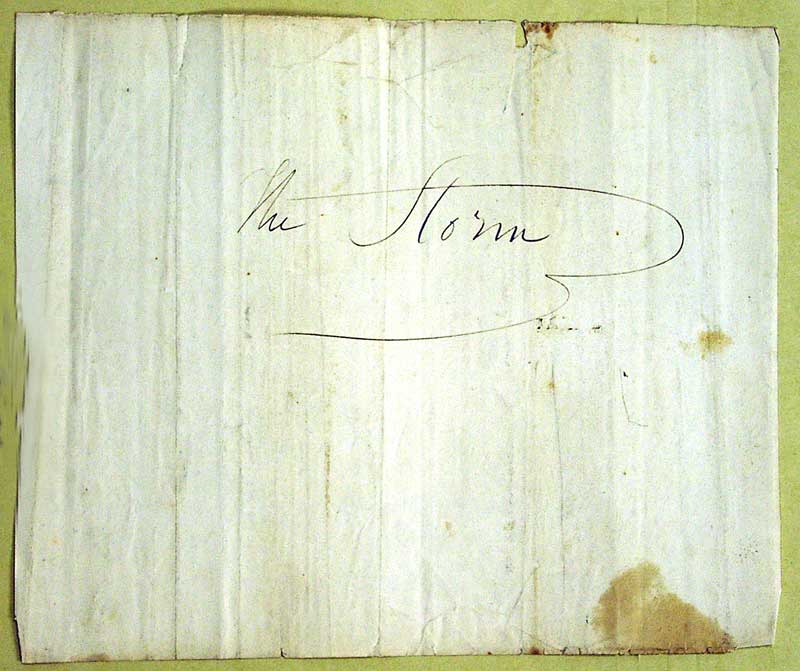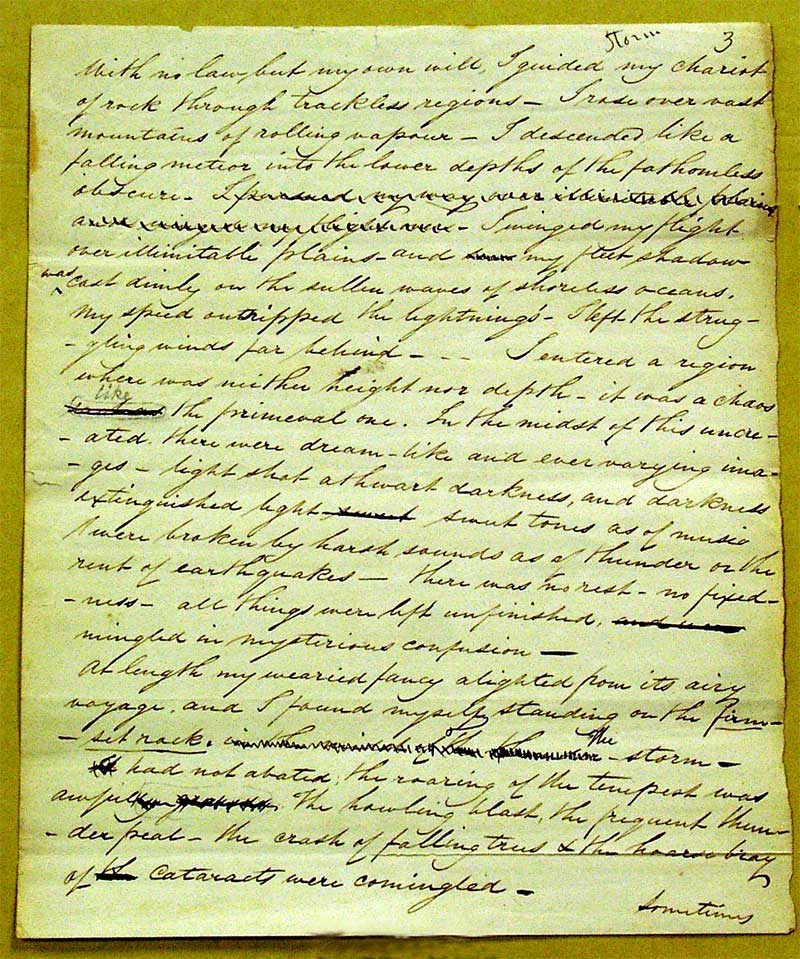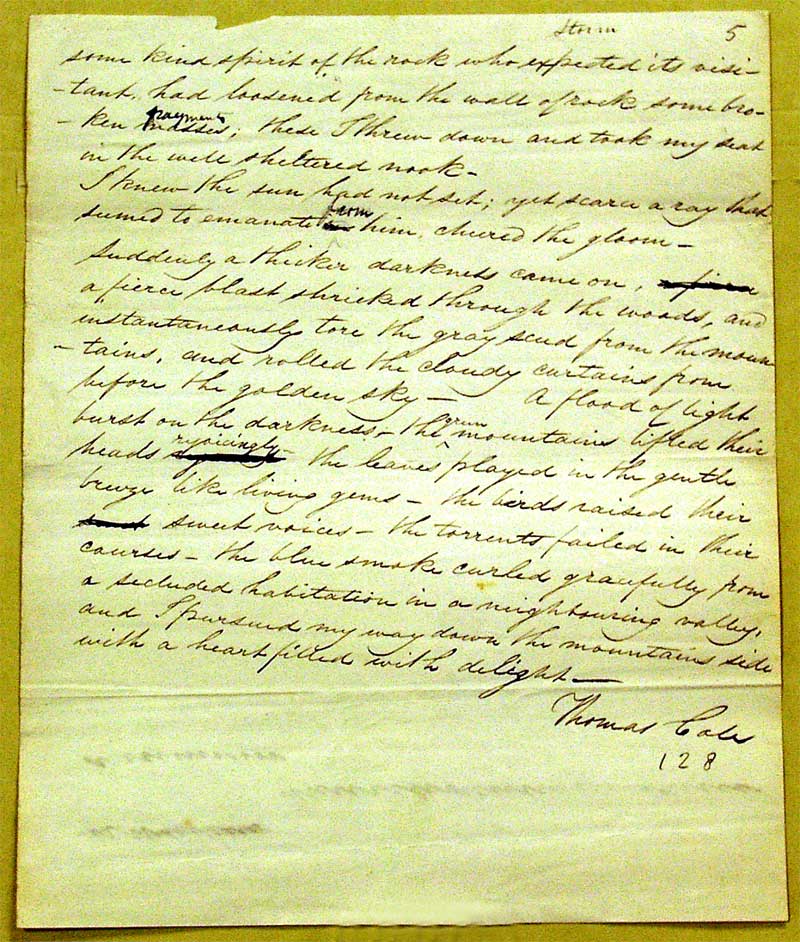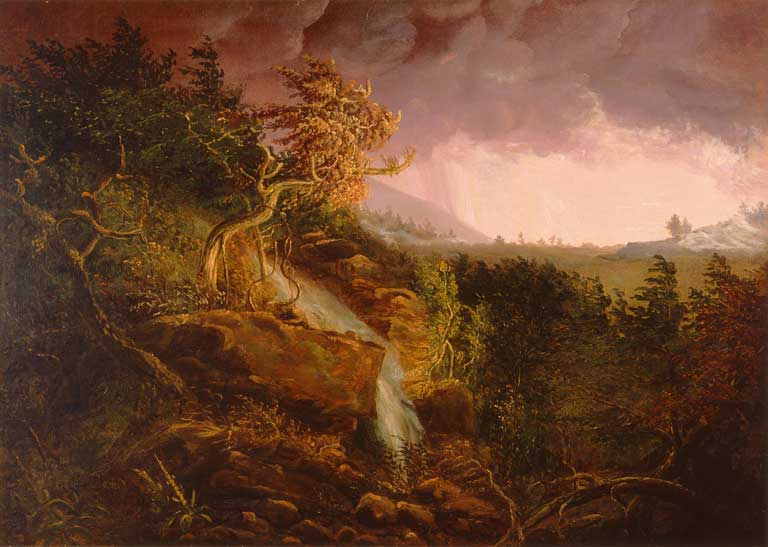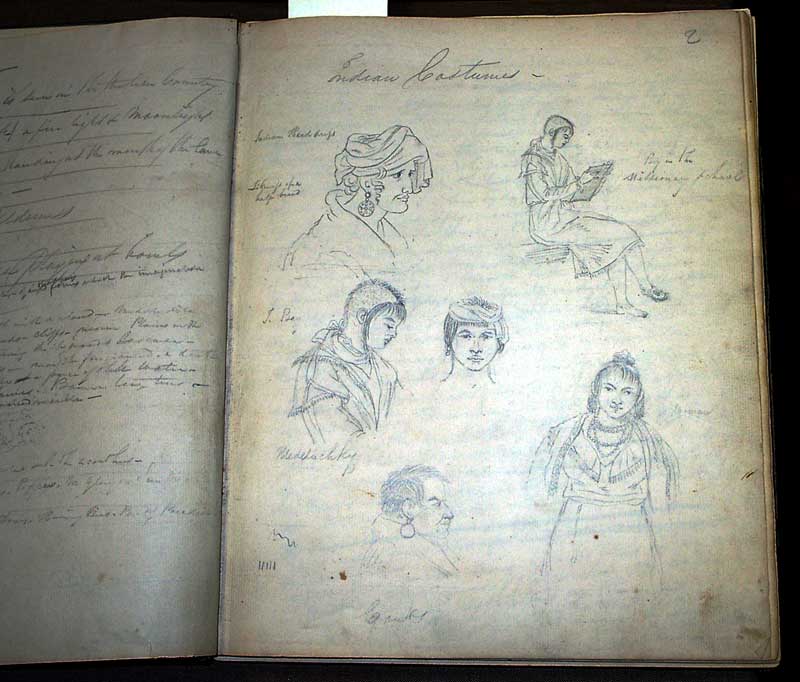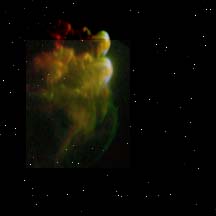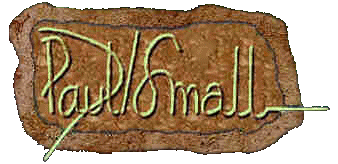VOICE
OF THE LANDSCAPE
A Palimpsest of Time and Place
Thomas Cole
Painter, Poet, Prophet
Earth Elegies III
Work-in-Progress
The Storm
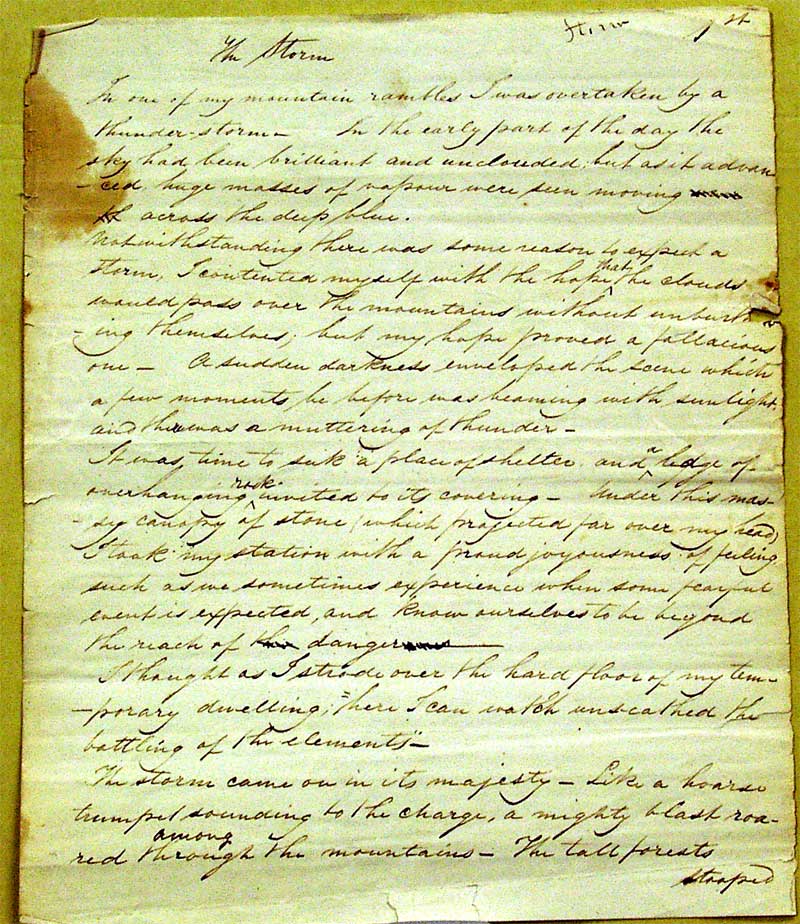
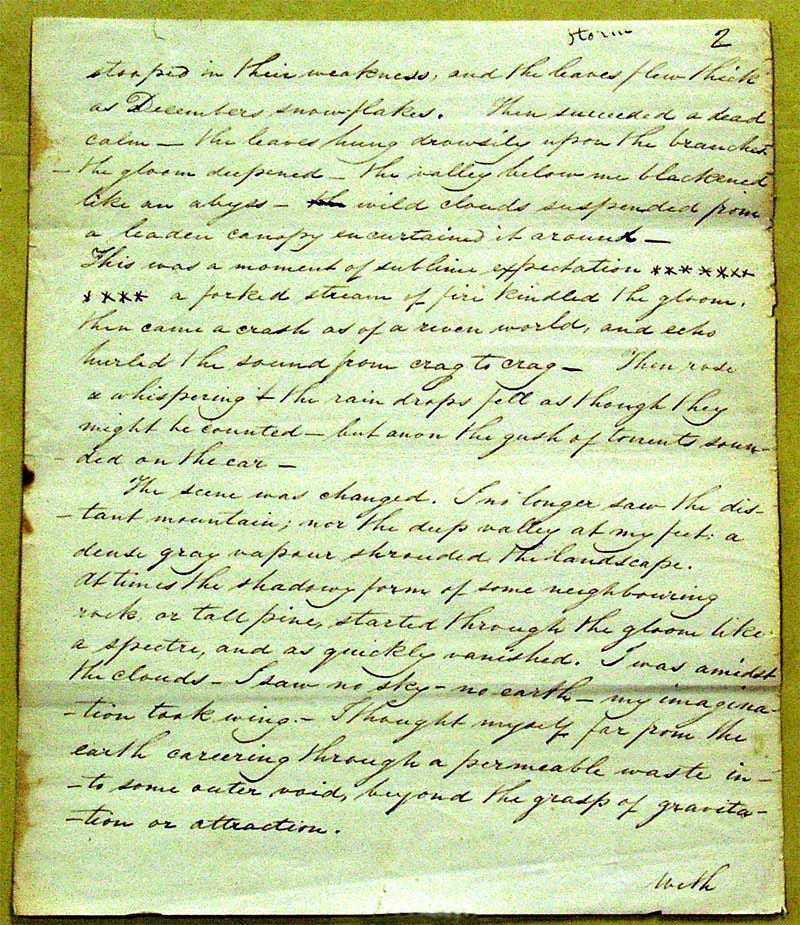
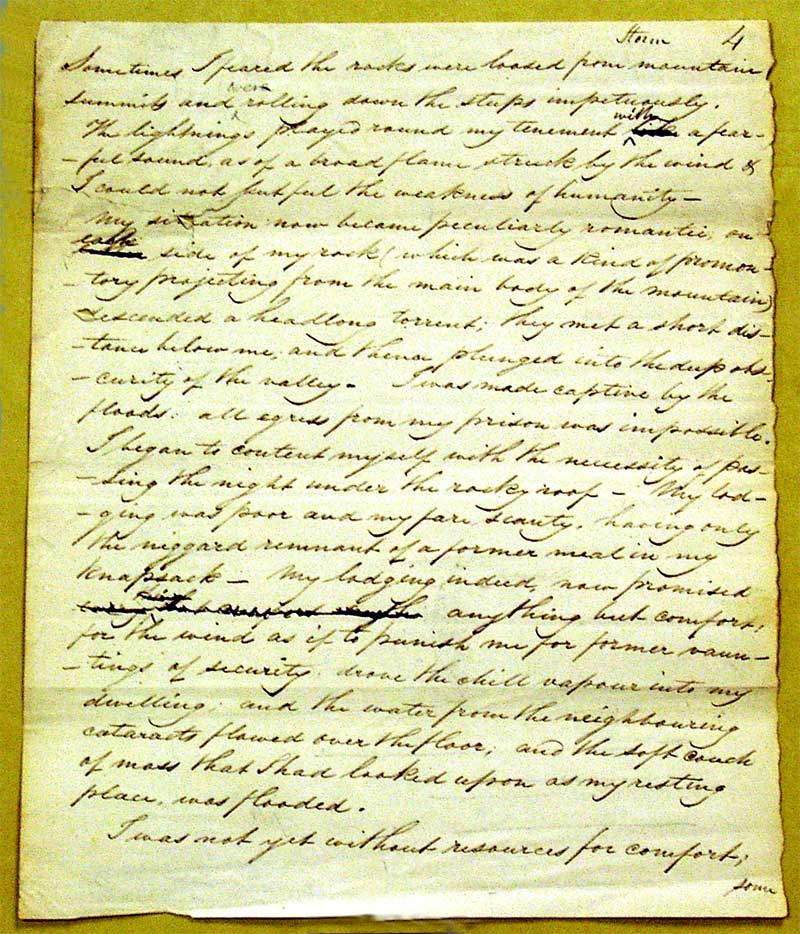
Storm in the Wilderness , 1826-28
The STORMIn one of my mountain rambles I was overtaken by a thunderstorm. In the early part of the day the sky was brilliant and unclouded. As it advanced, huge masses of vapor were seen moving across the deep blue. Though there was some reason to expect a storm, I contented myself with the hope that the clouds would pass over the mountains without unburdening themselves. My hope proved fallacious. A sudden darkness enveloped the scene, which a few moments before was beaming with sunlight, and thunders muttered in the distance. It was necessary soon to seek a shelter, which I found beneath an overhanging rock. Under this massive canopy of stone I took my station, with the feeling of one who knows himself out of the reach of peril, while it is all around him. Here, thought I, as I paced the rocky floor of my temporary castle, I will watch unharmed the battle of the elements. The storm came on in all its majesty. Like a hoarse trumpet sounding to the charge, a strong blast roared through the forest, which stooped in its weakness, and shook off its leaves as thickly as in October. To this tremendous onset succeeded a death-like calm. The deep gorge below me grew darker, and the gloom more awful : terrific clouds gathered in their black wings, upon the hollow bushed abyss, closer and closer. Expectation hung on every crag. A single pass of one long blade of lightning through the silence, followed by a crash as of a cloven mountain with a thousand echoes, was the signal for the grand conflict. A light troop of raindrops first swept forward, footing it over the boughs, with a soft and whispery sound ; then came the tread of the heavy shower : squadrons of vapor rolled in, shock succeeded shock, thunderbolt fell on thunderbolt, peal followed peal, waters dashed on every crag from the full sluices of the sky. I was wrapped in the folds of the tempest, and blinded to every prospect beyond the rugged doorway of the cave. Then came up a thousand fancies. I thought myself careering in a chariot of rock through airy wastes, beyond the reach of gravitation, with no law but my own will. Now I rose over mountainous billows of mist, then plunged into the fathomless obscure. Night shot athwart the darkness, darkness extinguished light: to musical murmurs succeeded quick explosions. There was no cessation, fixedness, or rest. The storm kept on, strong and furious ; no fancy could dissipate the awful reality; no imagery of mind could amuse the fears that began to throng around my heart! Trees fell with a stifled crash, cataracts mingled their din with the general uproar. I began to fear that the rocks would be loosened from the brow of the mountain above me, and roll down with overwhelming force. The lightning played round my very tenement, and the thunder burst on my door-stone. I felt as feeble as a child. Every moment my situation was becoming more comfortless, as well as romantic. A torrent, to all appearance parted by the projecting crag which formed the roof of my shelter, came rushing down on both sides of me, and met again a short distance below me. Here I was, a captive to the floods, and began to meditate the possibility of having to spend the night in this dismal nook. There was the hard rock, a little mat of moss, and the remains of a mountain dinner in my knapsack. The wind drove the chilly vapor through my portals ; the big drops gathered on my stone ceiling, and pattered on my bat and clothes, and the waters began to flow in little brooks across my floor. My bed of moss became a saturated sponge. I piled the loose flakes of rock in the cave, and sought comfort on the rug rugged heap. My only hope was the sudden cessation of the storm. I knew that the sun was hardly yet setting, although the darkness had deepened fearfully. But this, to my great joy, turned out to be the crisis of the tempest.
All at once a blast with the voice and force of a hurricane swept up through the gulf, and lifted, with magical swiftness, the whole mass of clouds high into the air. This was the signal for a general dispersion. A flood of light burst in from the west, and jeweled with glittering raindrops the whole broad bosom of the mountain. T
To Cole, nature possessed a power to stir man's imagination
- a spirituality of the sublime -
it brought a flood of feeling and divine associations.
As above, so below - Cole describes being caught in a storm during his mountain walk:
“Like a hoarse trumpet sounding to the charge, a mighty blast roared through the mountains.
The tall forests stooped in their weakness, and the leaves flew thick as December snowflakes.
Then succeeded a dead calm.
The leaves hung drowsily upon the branches;
the gloom deepened;
the valley below me blackened like an abyss;
wild clouds suspended from a leaden canopy encurtained it around.
This was a moment of sublime expectation. A forked stream of fire kindled the gloom.
Then came a crash as of a riven world, and echo huried the sound from crag to crag.
Then rose a whispering & the rain drops fell as thought they might be counted;
but anon the gush of torrents sounded on the ear. . . .
I thought myself far from the earth careering through a permeable waste into some outer void,
beyond the grasp of gravitation or attraction.
I entered a region where was neither height nor depth;
it was a chaos such as the primeval one.
In the midst of this uncreated, there were dream-like and ever varying images:
light shot athwart darkness, and darkness extinguished light;
sweet tones as of music were broken by harsh sounds as of thunder
or the rent of earthquakes;
there was no rest, no fixedness;
all things were left unfinished, mingled in mysterious confusion. . . .
The howling blast, the pregnant thunder peal,
the crash of falling trees
& the hoarse bray of cataracts were commingled.
Sometimes I feared the rocks were loosed from mountain summits
and were rolling down the steeps impetuously.
The lightnings played round my tenement with a fearful sound,
as of a broad flame struck by the wind;
& I could not but feel the weakness of humanity.
My sensation now became peculiarly romantic. . . .
Suddenly a thicker darkness came on,
a fierce blast shrieked through the woods,
and instantaneously tore the gray scud from the mountains,
and rolled the cloudy curtains from before the golden sky.
A flood of light burst on the darkness;
the green mountains lifted their heads rejoicingly;
the leaves played in the gentle breeze like living gems;
the birds raised their sweet voices;
the torrents failed in their courses. . . .”
“Storm in the Catskills” Journal, 1828; pp. 93-95
In a poem of Cole's, entitled "The Wild," we have a similar description :
"Friends of my heart, lovers of Nature's works,
Let me transport you to those wild blue mountains
That rear their summits near the Hudson's wave.
Though not the loftiest that begirt the land,
They yet sublimely rise, and on their heights
Your souls may have a sweet foretaste of heaven,
And traverse wide the boundless: From this rock,
The nearest to the sky, let us look out
Upon the earth, as the first swell of day
Is bearing back the duskiness of night.
But lo! a sea of mist o'er all beneath;
An ocean shoreless, motionless, and mute.
No rolling swell is there, no sounding surf;
Silent and solemn all; the stormy main
To stillness frozen, while the crested waves
Leaped in the whirlwind, and the loosen'd foam
Flew o'er the angry deep.
See! now ascends The Lord of Day, waking with pearly fire
The dormant depths. See how his glowing breath
The rising surges kindles : lo! they heave
Like golden sands upon Sahara's gales.
Those airy forms disporting from the mass,
Like winged ships sail o'er the wondrous plain.
Beautiful vision! Now the veil is rent,
And the coy earth her virgin bosom bares,
Slowly unfolding to the enraptured gaze
Her thousand charms."In another place he writes as follows :
"Oh, for an hour
Upon that sacred hill, that I might sleep,
And with poetic fervor wake inspired !
Then would I tell how pleasures spring like flowers
Within the bosom of the wilderness,
And call from crumbling fanes my fellow-men
To kneel in Nature's everlasting dome,
Where not the voice of feeble man doth teach,
But His, who in the rolling thunder speaks,
Or in the silence of the shady night,
Breathes in His power upon the startled ear.
Then would I tell the seasons' change ; how spring
With tears and smiles speeds up the mountain's side,
And summer sips the moisture of her steps ;
Tell how rich autumn, decked in colored robe,
Laughing at thirsty summer, ceaseless shakes
The juicy fruits from her luxurious lap,
And winter, rending, in his angry mood,
With cold, remorseless hand, the mantle bright
His dying sister left him, rudely sweeps
His snowy beard o'er all the beauteous world.
The sun was set in peace. It was the hour
When all things have a tone of sadness,
When the soft cloud moves not in its azure bed,
Left by the purple day to fade and die,
But beautiful and lovely in its death,
As is the virgin who has died of love."
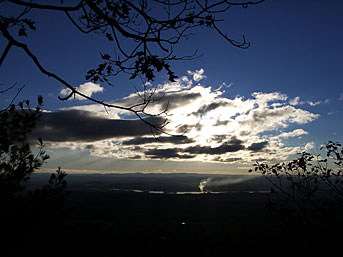
Thomas Cole's Writings
On American Scenery
The Lament of the Forest
Writings of his Contemporaries
William Cullen Bryant
Washington Irving
Thomas Cole's 1827 Sketchbook
A Look Inside
